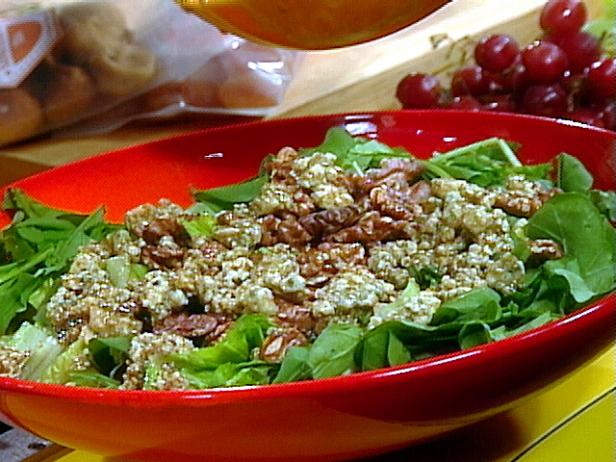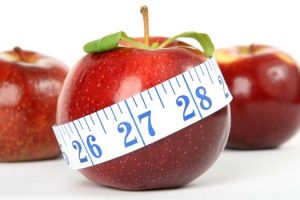6 Reasons to Stop Buying Microwave Popcorn
6 Reasons to Stop Buying Microwave Popcorn

Ah, popcorn. A movie staple, a campfire favorite, even a Christmas decoration. We’re big fans of the stuff here at our house. The way we enjoy it, though, is the semi-old fashioned way: we make ours with the air popper (the truly old-fashioned way is in a skillet, over a fire, just in case you were wondering). Back in our pre-microwave days in the 1980s, my mom always made popcorn with the air popper. She’d salt it a little and mix in some melted butter. Mmmmm…
Then the microwave relegated the air popper to the back of the cupboards, taking up space alongside the other hardly used appliances. It just seemed so much more convenient to just pop the bag in the microwave. Sure, sometimes a good portion of the bag’s contents were either charred or completely unpopped, but that was the trade-off for a pre-seasoned and effortless bag of popcorn. That’s the way it was for us, at least.
For Christmas in 2008, my parents gave us an air popper (we’re still using the same one) and some fun serving containers. We stopped buying the microwave stuff and have only used our air popper ever since. Though this is our preferred way to pop, there are other methods, like cooking it on the stovetop or microwaving popcorn kernels in a brown paper bag. Each way works well and is better than the stuff sold pre-packaged at the store. Here are six reasons why you should take the boxes of microwave popcorn off your shopping list…
1. Homemade popcorn is frugal.
Hence the mention on here, right? There is no denying that buying the popcorn kernels is much cheaper, especially if you can find it in the bulk food bins at the grocery store (most common in health/natural food stores). With microwave popcorn, you’re paying for the bags, the brand, the oils and seasonings, and plastic packaging. For the same price of a few bags of microwave popcorn, you could get pounds of the kernels. It only takes a half cup of kernels in our air popper to yield a big bowl of popcorn. A pound of popcorn goes a long way. Even if you buy the popper (which run around $15-25), it’s still the more frugal way to enjoy popcorn. Just by skipping microwave popcorn and getting the kernels in bulk, the popper soon pays for itself in savings.
2. Homemade popcorn is less wasteful.
Whenever I make popcorn, there’s maybe two or three kernels left unpopped, maximum. And I’ve never had burned popcorn making it with the air popper. All those burnt/unpopped kernels at the bottom of the microwave is waste. Unless you’ve gotten microwaving popcorn down to a science or the popcorn setting on your microwave actually works, waste is practically inevitable.
3. Microwave popcorn takes as long to pop as homemade.
To prove this, I timed how long it took to pop half a cup of kernels (which equals a big bowl of popcorn). Barely over two minutes (plus the 30 or so seconds it took to get the popper out of the pantry, get a bowl out of the cupboard, and plug it in). That’s just about as long as it takes to do the microwave stuff. I can’t say how long it takes to do it the other ways I mentioned — on the stovetop or in the paper bag — but I’m willing to bet it’s pretty close. So, really, what are you paying for with microwave popcorn? Is it really that much more convenient?
4. Microwave popcorn is unhealthy. Like, really unhealthy.
I recently read an article entitled, “7 Seven Foods That Should Never Cross Your Lips” and microwave popcorn is on the list. Here’s why, quoting the article:
“Chemicals, including perfluorooctanoic acid (PFOA), in the lining of the bag, are part of a class of compounds that may be linked to infertility in humans, according to a recent study from UCLA. In animal testing, the chemicals cause liver, testicular, and pancreatic cancer. Studies show that microwaving causes the chemicals to vaporize—and migrate into your popcorn. ‘They stay in your body for years and accumulate there,’ says Dr. Naidenko, which is why researchers worry that levels in humans could approach the amounts causing cancers in laboratory animals. DuPont and other manufacturers have promised to phase out PFOA by 2015 under a voluntary EPA plan, but millions of bags of popcorn will be sold between now and then.”
Yuck.
5. Cheap entertainment.
My older son has been entertained by the popcorn popper since the first time we used it, back when was barely two years old. Even now as a big five-year-old, he still likes watching the kernels spin and then pop like crazy. It’s a great way to dispell a grouchy mood. Even though the baby doesn’t eat popcorn yet (choking hazard and all), he giggles and squeals as we make it. Homemade popcorn is also better for crafts like popcorn chains (can you imagine stringing greasy microwave popcorn?).
6. Homemade popcorn tastes better.
Microwave popcorn in “butter flavor” doesn’t come close to popcorn with real butter. It just doesn’t. It might take you a little adjustment at first if you’re used to the intensely flavored and super-salty stuff, but once you’re used to the wholesome taste of popcorn seasoned with some salt and real butter, you’ll think the microwave stuff is gross. Plus, there are other options for seasoning air popped popcorn: cocoa popcorn (my son literally licked the bowl clean), basil popcorn (yum), toffee popcorn (this recipe looks amazing), and more. The best part about homemade popcorn is that you control what goes (and doesn’t go) in it. You can make it as healthy or as decadent as you want.
All this is making me hungry. I’m going to go make some now. So should you.







 We talk a lot about the importance of reaching a goal weight and how to stay motivated. Sometimes, though, it still seems like a laborious task. If you’re carrying extra weight, you probably already know there are a myriad of health-related reasons to slim down. While it may seem impossible, little steps will carry you bit by bit down your weight loss path to your ultimate goal.While keeping your eyes on the big prize, it may help you to realize that even small changes in your weight may improve blood sugar, blood pressure, heart health, reduce cholesterol, and decrease your chances of developing diabetes. We’ve shared many motivational tips, but did you know that when you lose 10% of your bodyweight, you are instantly healthier? There’s no doubt that dropping weight will make you look and feel better, but there are numerous other benefts that you can realize while on your weight loss journey, which have nothing to do with how you look in your skinny jeans. Read more: Strategies for successful maintenance after weight loss.
We talk a lot about the importance of reaching a goal weight and how to stay motivated. Sometimes, though, it still seems like a laborious task. If you’re carrying extra weight, you probably already know there are a myriad of health-related reasons to slim down. While it may seem impossible, little steps will carry you bit by bit down your weight loss path to your ultimate goal.While keeping your eyes on the big prize, it may help you to realize that even small changes in your weight may improve blood sugar, blood pressure, heart health, reduce cholesterol, and decrease your chances of developing diabetes. We’ve shared many motivational tips, but did you know that when you lose 10% of your bodyweight, you are instantly healthier? There’s no doubt that dropping weight will make you look and feel better, but there are numerous other benefts that you can realize while on your weight loss journey, which have nothing to do with how you look in your skinny jeans. Read more: Strategies for successful maintenance after weight loss. Extreme Makeover features a celebrity trainer helping very overweight individuals reach their weight loss goals. Sometimes, their attitudes aren’t great, but other times, the people on the show are truly amazing, like Sara. Sara is a little person, standing at only 4’5″. She was a nutrition speaker on local television shows at the start of her journey, but ashamed of herself. Not only had she spent her life dealing with her short stature, but she had suffered greatly at the hands of her sister. She turned to eating and by the time she was 37 years old, weighed over 200 pounds.
Extreme Makeover features a celebrity trainer helping very overweight individuals reach their weight loss goals. Sometimes, their attitudes aren’t great, but other times, the people on the show are truly amazing, like Sara. Sara is a little person, standing at only 4’5″. She was a nutrition speaker on local television shows at the start of her journey, but ashamed of herself. Not only had she spent her life dealing with her short stature, but she had suffered greatly at the hands of her sister. She turned to eating and by the time she was 37 years old, weighed over 200 pounds.

 We talk a lot about how to stay motivated and the importance of reaching a goal weight. Yet sometimes, it still seems like a laborious task. If you’re carrying extra weight, you probably already know there are a myriad health-related reasons to slim down. While it may seem impossible, little steps will carry you bit by bit down your weight loss path to your ultimate goal on the Doctor Supervised ChiroThin Weight Loss Program™.
We talk a lot about how to stay motivated and the importance of reaching a goal weight. Yet sometimes, it still seems like a laborious task. If you’re carrying extra weight, you probably already know there are a myriad health-related reasons to slim down. While it may seem impossible, little steps will carry you bit by bit down your weight loss path to your ultimate goal on the Doctor Supervised ChiroThin Weight Loss Program™. There is no medical definition for a “superfood”. Food manufacturers are eager to use the word to promote sales of their products that contain traces of supposed superfoods such as blueberries, pomegranates and chocolate. The Oxford English Dictionary defines a superfood as “a nutrient-rich food considered to be especially beneficial for health and well-being.” However, there are no set criteria about what makes a food nutrient-rich. Most superfoods are high in antioxidants and phytonutrients relative to other foods. However, if you were to eat only one of these superfoods to the exclusion of all else, you would be seriously deficient in many of the nutrients your body needs in order to stay healthy. So what exactly is the science behind the idea of superfoods?
There is no medical definition for a “superfood”. Food manufacturers are eager to use the word to promote sales of their products that contain traces of supposed superfoods such as blueberries, pomegranates and chocolate. The Oxford English Dictionary defines a superfood as “a nutrient-rich food considered to be especially beneficial for health and well-being.” However, there are no set criteria about what makes a food nutrient-rich. Most superfoods are high in antioxidants and phytonutrients relative to other foods. However, if you were to eat only one of these superfoods to the exclusion of all else, you would be seriously deficient in many of the nutrients your body needs in order to stay healthy. So what exactly is the science behind the idea of superfoods?